
Midot Tovot Workshop
Stories depicting a love of mitzvot are an excellent tool for developing our children's good midot. Through stories, we create a positive...

Midot Tovot Workshop –
Developing Our Children’s Emotional IQ
* * *
Dearest Readers,
Speaking to you through this media is second-best to speaking to you in person. I truly hope you e-mail the editor – a method of corresponding with me; so I know how many of you I am reaching.
My Midot Tovot workshop is based on the educational concepts presented in my book, "Precious Jewels." It is designed to teaching children good midot (character traits) through stories and learning the foundations of our basic mitzvot. Never underestimate the impact that a lovingly presented story has on a child. Through stories, we can transmit important concepts and inspire our children to develop their good midot. I hope you have a copy of "Precious Jewels," to follow along with this workshop.
While giving this workshop at a Teacher’s Conference sponsored by the Association of Jewish Day Schools of Greater Baltimore in conjunction with Torah Umesorah, I shared with them many of the sources for my creative methodology that are contained in the book, "Teaching with the Brain in Mind," 2nd Edition Revised and Updated – by Eric Jensen. This book explains how the brain develops from childhood through teenage years. Through understanding our children’s cognitive development, we can better understand why they act as they do, and then we can learn how to better communicate with them.
"A new discovery about the brain is that human beings have the capacity and the choice to be able to change our own brains. It’s now understood that environmental events, your experiences and the actions you take can lead to changes in your brain. Your brain is dynamic and constantly changing as a result of the world you live in and the life you lead. With this in mind, a mother and teacher plays a very major part in a child’s life.
MIDOT: "Our brains have an extraordinary opportunity to become customized by life experiences. The brain areas wait for signals from the environment to tell them whether they should ‘set up camp’ or wait for further signals. Whatever is first, whatever activities are more frequent, and whatever actions are more coherent will "win" the competition for network wiring and signal the brain to allocate space and resources to that set of behaviors."
Therefore it is of utmost importance to begin teaching our children good midot as early as possible!
In my precious article, Step Two: Appreciation for Mitzvot, I wrote that through beginning their day with prayer, children integrate the concept of gratitude, trusting Hashem, and consideration for others. Once they were used to beginning their day with prayer, the time was ripe to refine their character traits. The teaching of midot (character traits) is a subject in and of itself, and it is best to use practical applications to drive home the lesson.
When I was a teacher, I encouraged games as an avenue to teach good midot. One year we had an open school week where the parents were invited to observe the class. They were amazed at the good will demonstrated during sports; the opposing team actually clapped when the other team won a point! How was this accomplished? The first time the class played a game, I asked the team that lost, "Who is happy for the other team?" The ones that raised their hands were rewarded. Of course the next time I asked the same question, every hand went up! In the same way, at home we should reward the child that avoids a confrontation and shows good sportsmanship!
Stories depicting a love of mitzvot are an excellent tool for developing our children’s good midot. Through stories, we create a positive association with the values that we wish to impart to our children.
Find a story describing how one mitzvah leads to another mitzvah (an example is Mitzvah Goreres Mitzvah on page 55 of Precious Jewels)[A personal example of that would be that yesterday I walked my neighbor’s children to school, and on the way I ran into an acquaintance who asked me to organize a woman’s Shabbos class. Editor] After reading or telling a story, ask your children, "What mitzvah did you do today that led to another mitzvah?" You’ll be surprised at how animated your children will be as they tell you what mitzvah they did that day that led to another mitzvah! What a beautiful way to fall asleep; what pleasant dreams the children will have!
(This is based on a Mishna in Pirkei Avot: Ben Azzai would say: Run to pursue a minor mitzvah, and flee from a transgression. For a mitzvah brings another mitzvah, and a transgression brings another transgression. For the reward of a mitzvah is a mitzvah, and the reward of transgression is transgression (4:2). An extremely important concept to incorporate into our own lives, and hopefully we will discuss it in greater depth in future articles. Editor)
* Tell a story describing how a transgression brings another transgression in its wake. [An example would be of a child who colors on his sister’s homework, and then lies to cover up what he did! Editor] In the story Aveira Goreres Aveira in Precious Jewels, a seemingly innocent incident leads to a crashing outcome! After hearing a story on how one transgression leads to another transgression, we can discuss what happens if children go to sleep too late, or leaving toys in an undesirable place, etc. These stories and the following discussions will have a lasting impact on our children’s midot.
* It’s important to teach our children to care about others and do things for others. A story exemplifying this concept is Reb Moshe Leib’s Selichot on page 57 of Precious Jewels. This story, which tells how a great rabbi exemplified the midah of chessed (lovingkindness) was always a favorite with my own children.
I grew up with these stories, and I desired to emulate the good midot exemplified in these stories. I remember one motzaei Shabbat when it was raining hard and my father had not yet arrived home from shul. Thinking of others was so automatic that I grabbed an umbrella from the closet and ran to meet my father as he walked home from shul. My father’s gratitude was certainly worth getting wet!
Bikur Cholim – visiting the sick: Tell your children about the times that you visited someone who was not well, or even better, if at all possible, bring your children with you when you go to visit someone who is sick. [When I was in second and third grade, my mother would take me with her every Sunday on her weekly visit to the Jewish Old Age Home. I still remember talking with the older people, and helping my mother feed them. Editor] As a teenager, I remember taking care of my grandmother in the hospital, and walking with my father to visit my grandfather in the hospital. Years later, when I was a teacher, the school principal arranged with the hospital chaplain for my class to visit the Jewish patients on Friday. Every week we baked challot and then distributed them to the Jewish patients. It was such a rewarding experience, that at least one of my students decided to volunteer in a hospital during her summer vacation.
* How can we imbue our children with respect for their elders? Through being good role models and sharing with them inspiring stories of our own past. The story "Considerations for others –Train Experience" on page 67 of Precious Jewels is just one example of how happy we feel when we demonstrate respect for our elders.
Hashavat Aveidah – returning a lost item. The story "Lost purse" on page 68 of Precious Jewels is one example of this midah. I knew these stories were hitting home when my students were constantly asking me questions such as, “Morah, I found a pencil. Does it belong to anyone?”
Hachnasat Orchim – hospitality – Hospitality consists of:
1. giving our guests comfortable sleeping accommodations.
2. giving our guests food to eat.
3. giving our guests something to drink
4. escorting our guests when they leave.
5. giving our guests food and drink to take with them when they leave.
There are several excellent stories on the mitzvah of hachnasat orchim in my book, Precious Jewels.
Songs are an excellent method for teaching good midot. Research has proven that music stimulates the brain, which results in a richer learning experience.
I taught my preschool class a song about hospitality and we sang it whenever anyone entered our classroom. The children were excited at the opportunity to serve their guests, and the guests were pleasantly surprised at the children’s warmth and enthusiasm.
Here are the words to the song:
Shalom, shalom to you,
Mah shelomcha hayom?
Tell me, tell me please,
What do you want?
Would you like a drink?
Would you like to eat?
Would you like to rest?
Shalom, shalom, shalom to you!
* You might want to make help your children act out some of their favorite stories. In that way, the children are bringing their thoughts into actions, and that is an excellent educational tool, as Eric Janson writes: "Recognize that students will learn better by doing than by only watching something being done. Brain Chemicals that support memory include cortisol, norepinephrine, and dopamine. These are produced and released in the brain under reasonably predictable conditions, including risk, excitement, urgency and pleasure. Now you have one more good reason to do Creative Activities that purposely evoke emotions—they enhance memories.
"The world has changed dramatically. With overworked parents having less time to invest in child rearing, today’s children have weaker social and emotional skills. Disruptive behaviors are on the rise. Schools ought to respond by offering more social and emotional skill-building, not less. Substantial pressures to have students succeed on tests means that even elementary school teachers are dropping these skills in favor of test-prep skills. We can all agree that students ought to be able to read, write, and count, but can we also agree that we’d like them to show empathy, fairness, and honesty as well? Many studies support the conclusion of Goleman (1995) that emotional IQ matters more than intellectual IQ."
[There are some secular stories that actually teach our children to be selfish and uncaring. One example of that is a very well-known story about a hen that prepared bread and then refused to share it with her neighbors. Although the central message is to promote productive, industrious behavior, the story also encourages selfishness – after all, the hen smugly told all the other animals in the forest that she will eat the bread "all by myself." Any story containing violence is extremely detrimental! The dangers of exposing young, impressionable children to the internet and television are beyond the scope of an editorial comment. The editor]
To be continued…




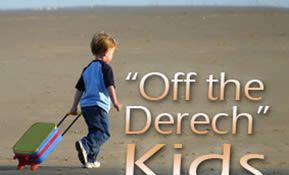

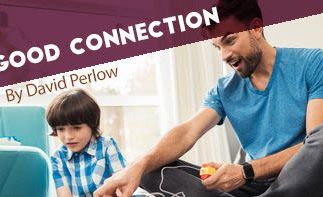


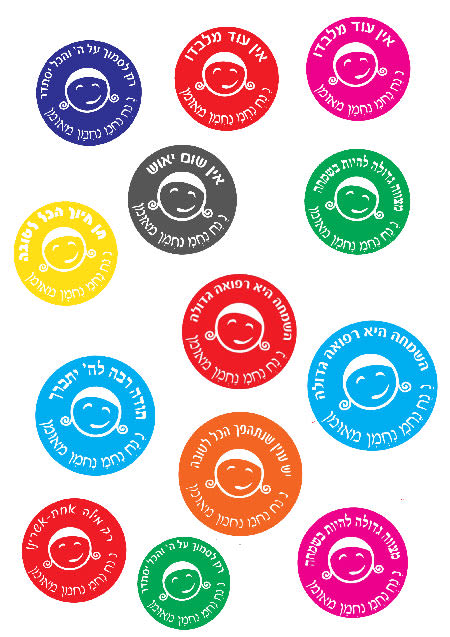


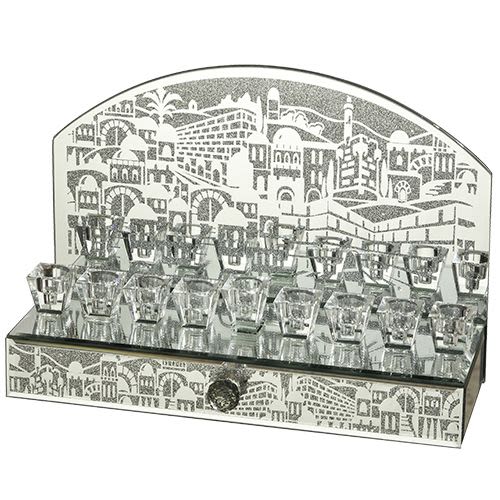
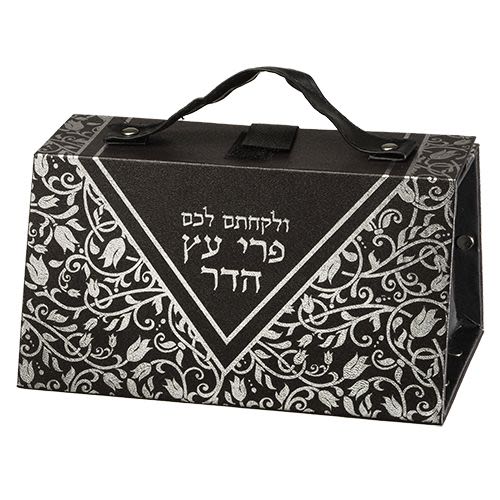
Tell us what you think!
Thank you for your comment!
It will be published after approval by the Editor.